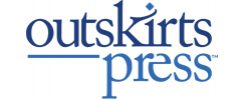I’ve said in the past that I use my own books as “guinea pigs” for the self publishing services we offer to authors. If I am successful doing something, it is reasonable to think that someone else can be successful, also. If something I do doesn’t have the positive impact I was hoping for, I adjust and try again. And if something fails, well then we know to either avoid suggesting it or to make an effort to advise our authors against it.
Such was one of the blog postings I made in 2005 on my old blog about Kirkus Discoveries, and it was one of the blog postings that led to an interview with the New York Times. At the time I believe Kirkus Discoveries was charging $350 for a “review” of self-published books. Recently they charged $400 or more, and very recently, I hear the future of Kirkus Discoveries seems to be in jeopardy entirely.
However, at the time in 2005, I had seen several of these Kirkus Discoveries reviews, courtesy of our authors, and came away with the feeling that this was not serving the best interests of self-publishing authors, in general. So I said in my blog this was something I wouldn’t recommend to our authors. And our Marketing COACH suggested our authors think twice about doing it.
Anyway, back to the story — another experiment I tried with one of my books was the so-called “Amazon Bestseller Campaign.” There are people out there charging thousands of dollars for this concept, but here it is for free: Contact as many people as you can (suggestions range from 500,000 to one million people) via email. Get as many people as you can to buy your book on Amazon all on the same day. Provide them with incentive to buy your book by offering them other products or services that have a value much greater than the cost of your book itself.
Conducting this campaign has its pros and cons. It also has its share of people firmly entrenched in the “this is good” camp and others firmly entrenched in the “this is evil” camp. All the “downsides” to this campaign contribute to the reasons we don’t currently offer it as a “service” for our authors — because a lot of our authors inquire about it.
Furthermore, pulling this off is easier said than done. Who knows 500,000 people they can email? Nowadays there are companies that charge thousands of dollars to implement this sort of campaign on behalf of the author.
Personally, I didn’t need to pay anyone to do it for me because I had access to lists, and I knew other industry professionals who would support my campaign. But it did take a lot of my time orchestrating, and in retrospect, it may have actually been more cost-effective and efficient — and perhaps even effective — for me to just buy it as a “package” from someone else. But, nevertheless, when Sell Your Book on Amazon was published, I conducted by own “bestseller” campaign as a test.
And it worked. My book reached #29 on the overall Amazon Sales Rank on March 27th, 2007. Below is a chart of my book’s Amazon sales rank that day. Notice that I have to change the SCALE of the chart 3 times in order to keep the chart from being 10 feet tall. Also notice that the ranking starts at 15,000. It would have done the same exact thing if it had started at 150,000 or 1,500,000. The initial ranking is important though, because it implies Amazon’s “true” valuation of the book. Which means after the “campaign” is over, your book will mostly likely return to roughly the level it started at. But in the meantime, you may have acquired a few more reviews, a few more tags, and a little more activity around your book — and that helps support your longer term marketing tactics on Amazon.

Click for a larger view (opens in a new window)
Was that an exciting day? You bet. Did I become a millionaire overnight? Of course not. I didn’t even reach #1. In fact, I didn’t even reach #1 in my category, which is the whole point of the campaign. I reached #2 in my category, because some HUGE best seller was #1, and I couldn’t knock it off.
As I mentioned in a previous post, best sellers are more a product of marketing than sales, just like Oscar winners are often more a product of marketing than quality.


